Today we’re publishing a series of infographics setting out the timeline for, and details of, what the UK and EU have committed to agree in the negotiations on their future relationship.
The UK Government wants to conclude negotiations by December 2020, giving the negotiating teams 11 months to reach agreement on the areas identified in the infographics below.
In addition to a trade agreement on goods and services, both sides have committed to seeking agreement on a number of other important areas such as fisheries, aviation, cybersecurity and counter-terrorism. Both parties have also agreed to explore opportunities for continued cooperation in the fields such as education, culture, science and innovation. These are areas that have been identified by Assembly committees and the Welsh Government as being important to Wales.
Timeline for the negotiations
Following the UK’s withdrawal from the EU on 31 January, the UK has now entered a transition period in which it will seek to negotiate and then transition to a new relationship with the EU. The Withdrawal Agreement states that the transition period could be extended but the UK Government, through the EU Withdrawal Agreement Act, has legislated to prevent UK Ministers from agreeing to such an extension. This means, that negotiations will need to be concluded and an agreement ratified by both sides by 31 December 2020.
The timeline below sets out some of the key milestones over the next 11 months based on publicly available information.
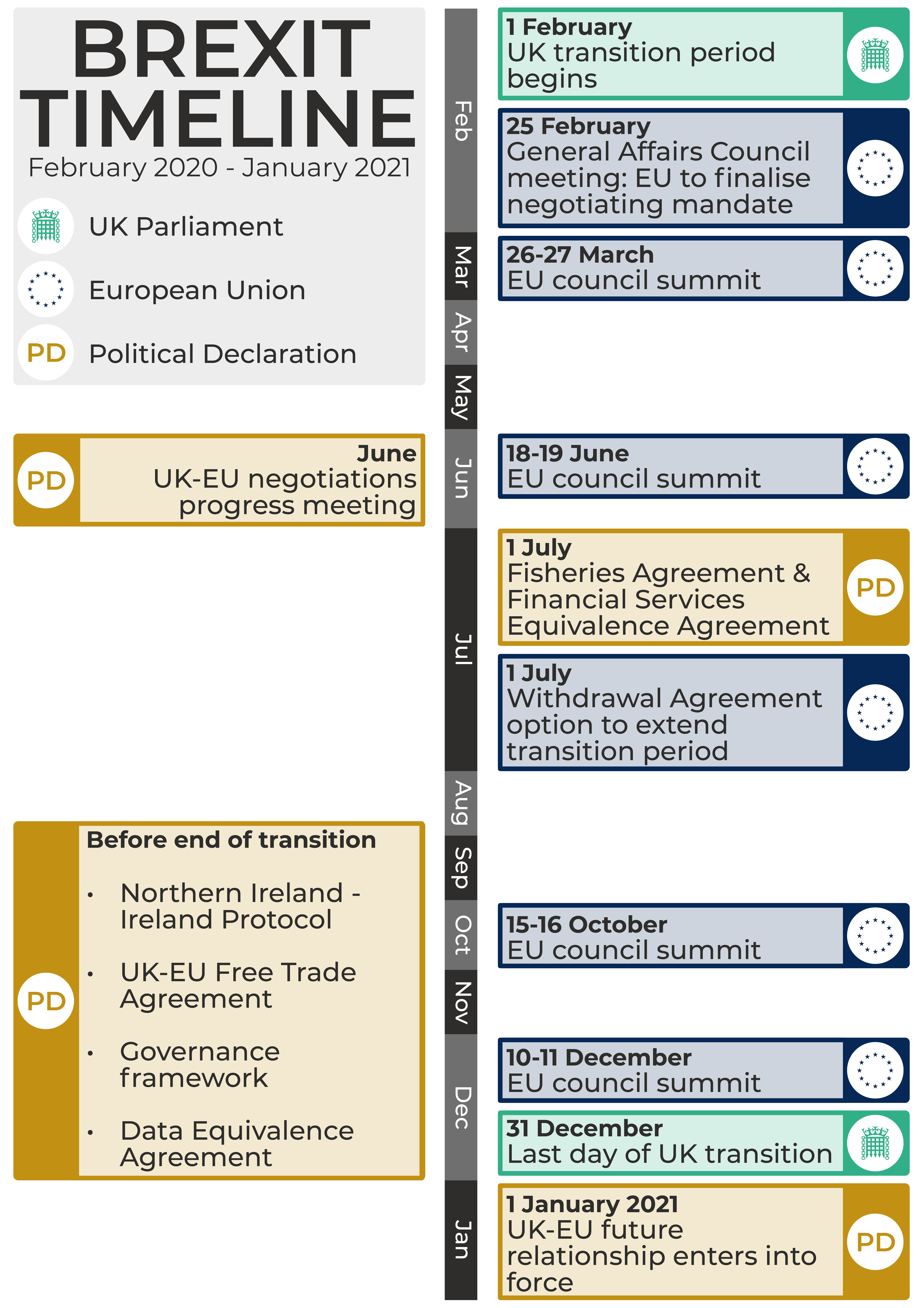
What needs to be agreed?
In October 2019, the UK and EU agreed the text of a Political Declaration. The Declaration sets out in broad terms a ‘roadmap’ for what both sides believe should be included in an agreement on the future relationship. We have analysed the different commitments made in the text and grouped them into four broad areas, captured in the infographics below. These are:
- an economic partnership, including a free trade agreement on goods, fishing, financial services, and road, rail, air and maritime transport;
- a security partnership, including cooperation on law enforcement and judicial matters, security and defence;
- agreements on areas of continued cooperation, including the potential participation of the UK in EU funded programmes; and
- a governance agreement which sets out how the future relationship will be governed and how any disputes on its implementation will be resolved.
It is not yet certain whether these will form part of one agreement or if there will be a series of different agreements between the UK and the EU.
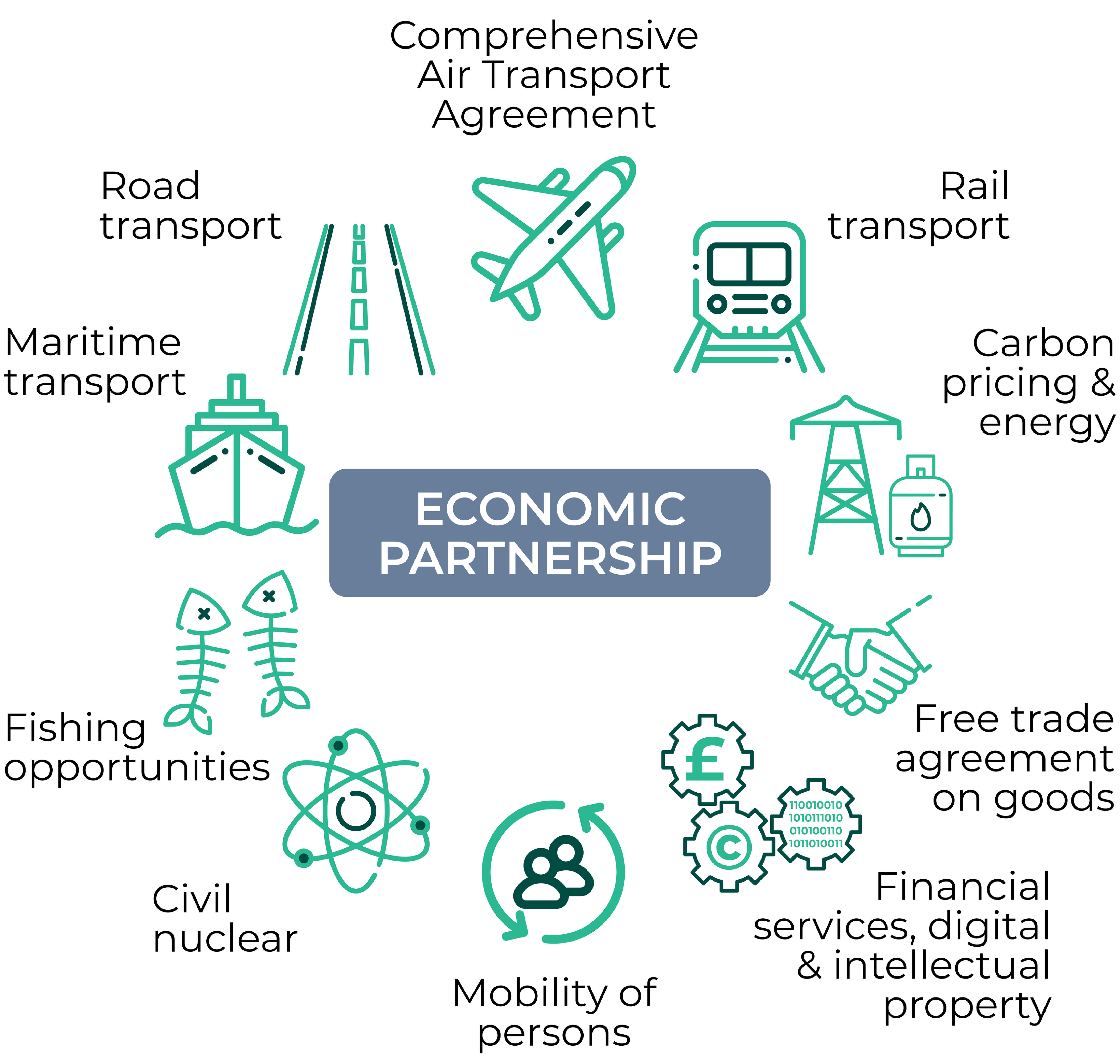
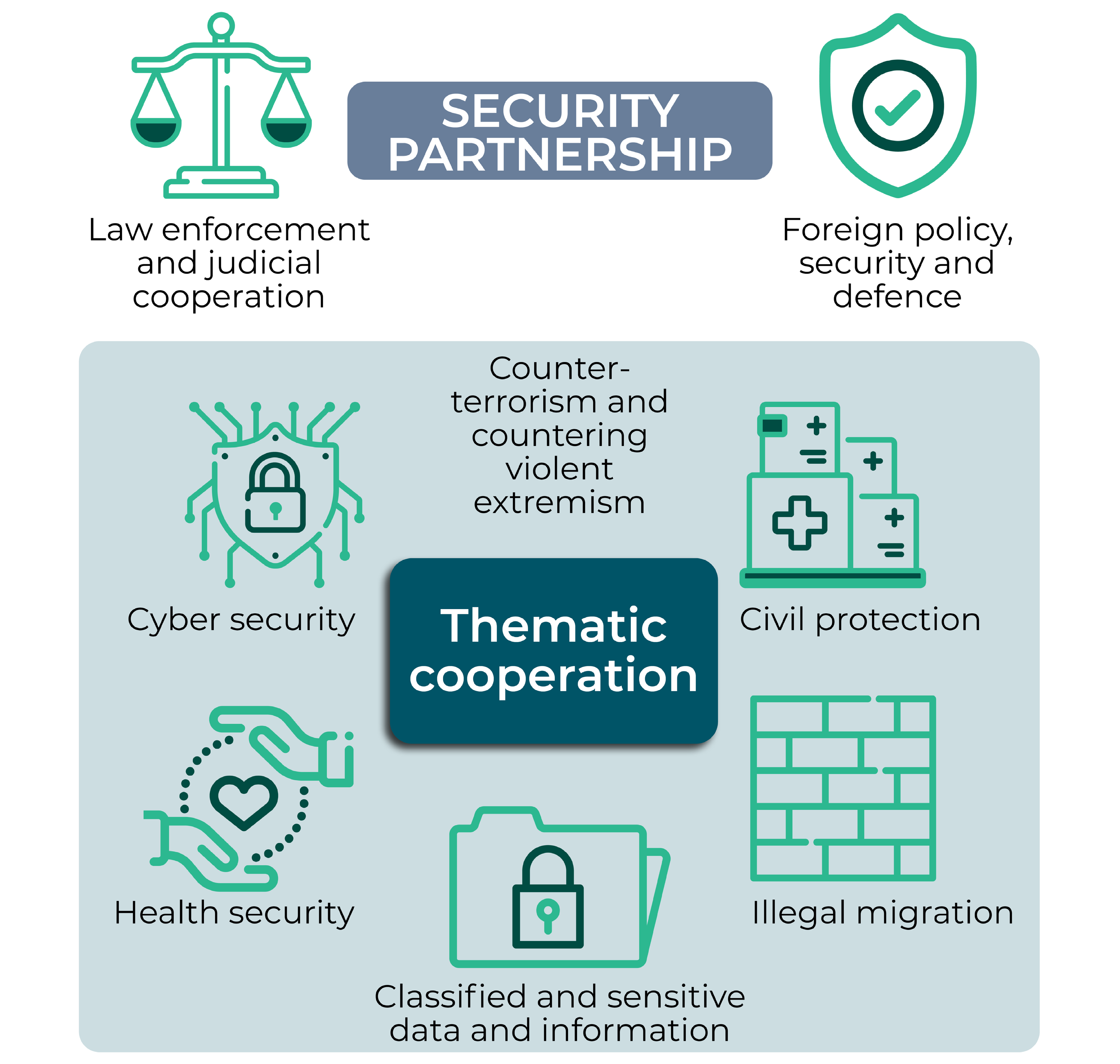
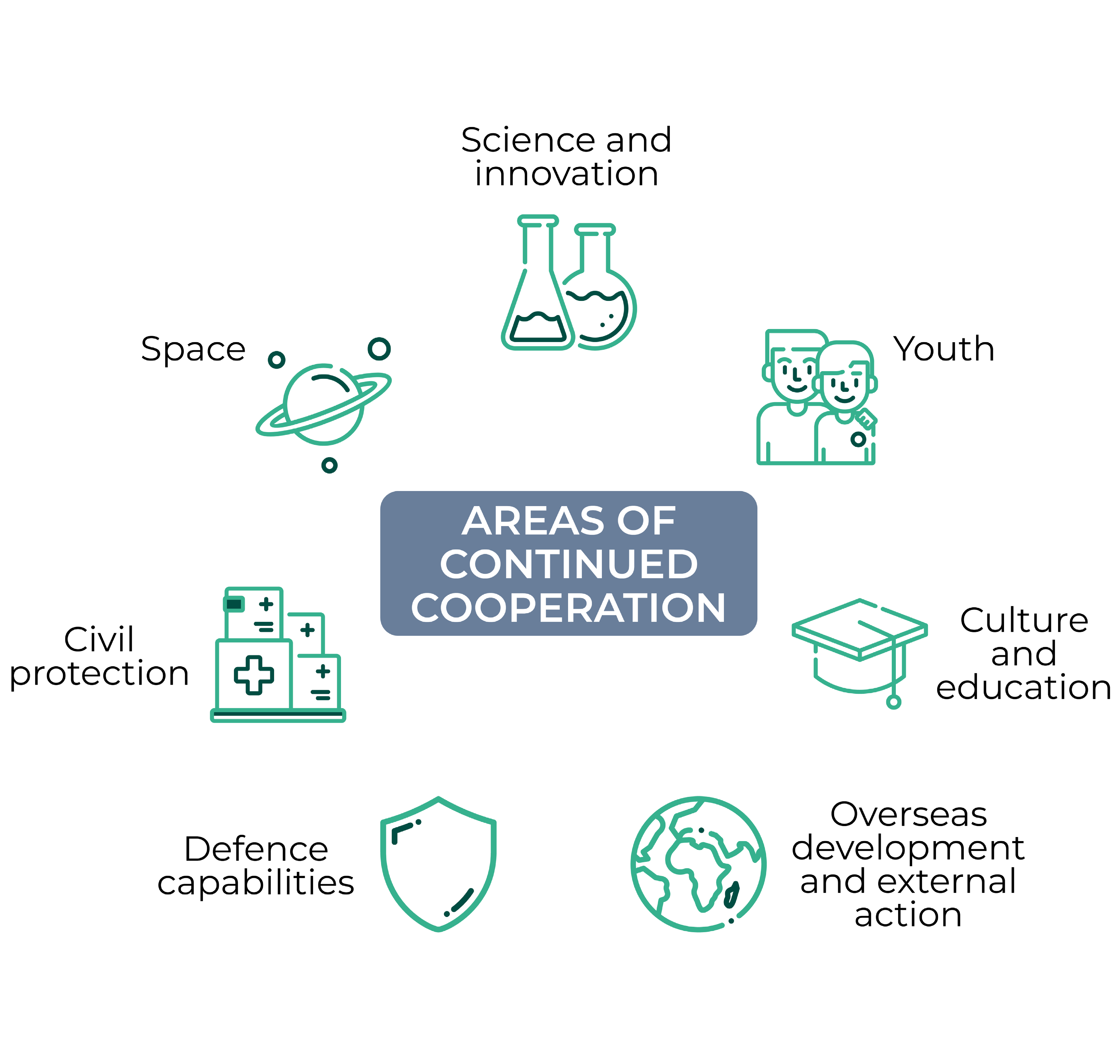
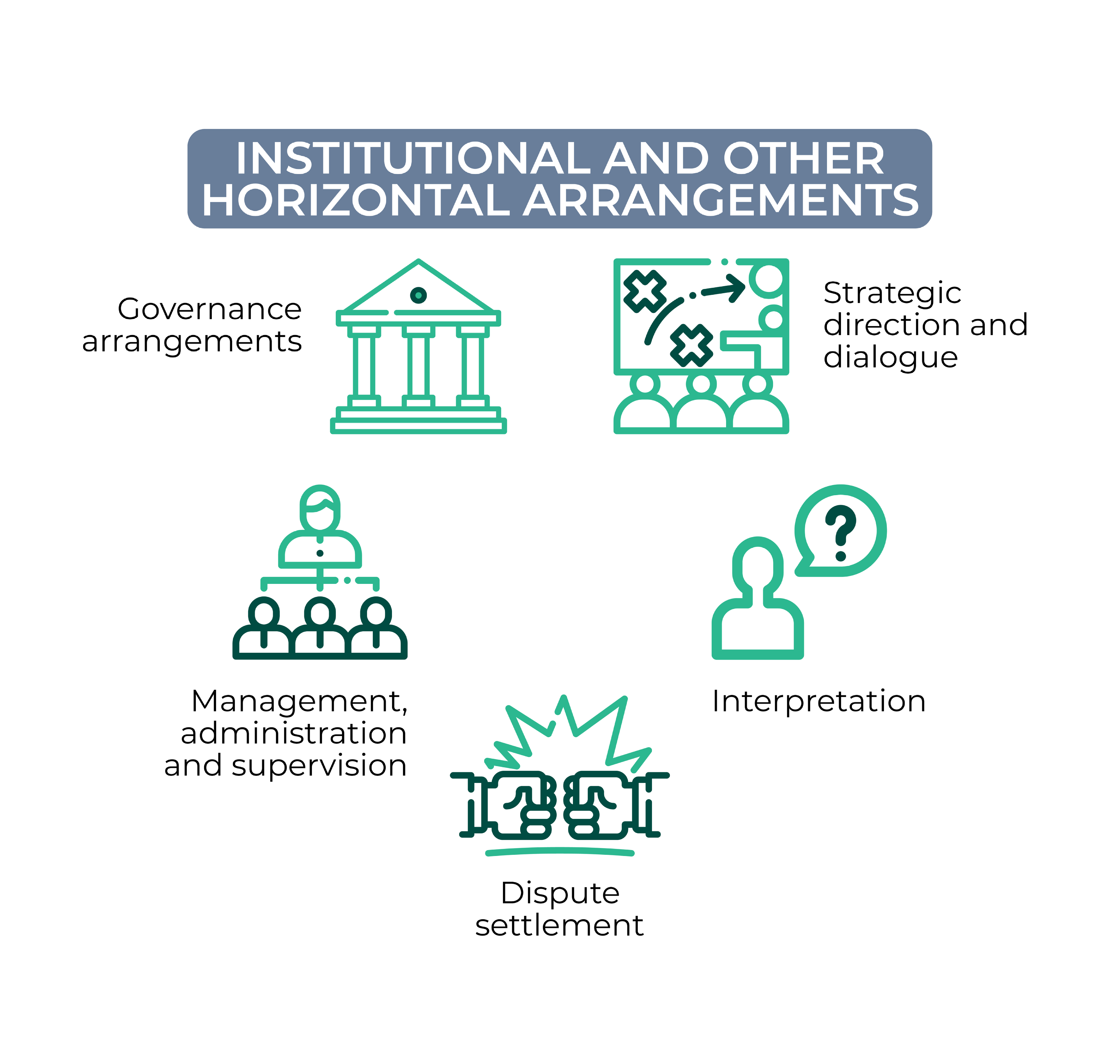
What happens next?
Both sides are now expected to adopt more detailed negotiating mandates before negotiations begin in earnest at the end of February or beginning of March. These texts will set out in detail what both sides hope to achieve in the negotiations and their priority areas for agreement.
The EU’s Council is expected to agree the EU’s mandate at the General Affairs Council meeting on 25 February 2019, following which the mandate will be published. The UK Government is expected to announce further detail on its position in the coming weeks.
We’ll set out more details about what elements of the negotiations might of greatest interest to Wales in a separate blog on the UK-EU future relationship later this week.
Article by Nia Moss, Sara Moran and Joe Wilkes, Senedd Research, National Assembly for Wales






